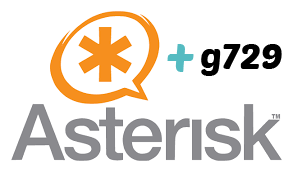
The article wants to investigate the chances and problems of this accessible form of communication as a prerequisite for and a means of political participa-tion from a linguistic point of view. "Leichte Sprache" is intended as a means of supporting and enabling participation in different areas of life for the target group. The current practice is often slanted towards (over-)simplification, reduction of infor-mation, of lexical and grammatical variety and of stylistic differentiation. A systematic empirical investigation of "Leichte Sprache" is still to be done. The existing lists of linguistic features and design rules were devel-oped mainly intuitively.

However, the concept's scientific exploration is still in its early stages. In 2009 the German government ratified the Convention on the Rights of Persons with Disabilities and thereby committed itself to provid-ing accessible information and communication. It is ad-dressed to people with learning disabilities and other groups with difficulties in reading and understanding (simple and complex) written text. "Leichte Sprache" as the equivalent concept to Easy-to-read and a form of accessible communi-cation has been established in the German-speaking countries since the early 2000s. We were uncertain whether Google Translate was accurately translating our complex medical phrases.3 4 Fortunately our patient recovered, and a … Reluctantly we resorted to a web based translation tool. The parents did not speak English, and there were no human translators available. We recently treated a very sick child in our paediatric intensive care unit. Indeed, even in a native language there is an element of translation from medical to lay terminology. A complex and nuanced medical, ethical, and treatment discussion with patients whose knowledge of the local language is inadequate remains challenging. In the United Kingdom most hospitals have access to translation services, but they are expensive and often cumbersome. The authors of the essays collected here present their findings, their own experiences, best practices and desiderata from various areas of activity and research contexts.Ĭommunication is the cornerstone of medicine, without which we cannot interact with our patients.1 The General Medical Council’s Good Medical Practice states that “Doctors must listen to patients, take account of their views, and respond honestly to their questions.”2 However, we still often interact with patients who do not speak the local language. This volume of proceedings offers both a theoretical and an empirical perspective on the state of the art in the field. The project, which is a cooperation between the Institute of Translation and Interpreting of the ZHAW and the Faculty of Translation and Interpreting of the University of Geneva, is funded by the State Secretariat for Education, Research and Innovation (SERI) and is supported by the Swiss University Conference. The conference was the first of three planned to take place as part of the project entitled “P-16: Proposal and implementation of a Swiss research centre for barrier-free communication” (2017-2020), the main goal of which is to ensure access to higher education for people with visual, hearing or temporary cognitive impairments. It was addressed at researchers, academics, practitioners and members of the target groups, and aimed to provide an international forum for the discussion of recent developments and emerging challenges in barrier-free communication. res/res_monitor.so /usr/lib/asterisk/modulesĪnd u keep using the Monitor() command as before with the functionality that keep the raw file (Filename-in.wav and Filename-out.wav and of course Filename.The 1st Swiss Conference on Barrier-free Communication was held on 15th – 16th September 2017 at the Department of Applied Linguistics of the Zurich University of Applied Sciences (ZHAW) in Winterthur, Switzerland. res/res_monitor.so /res/res_monitor.so.backupĬp.



After that this is the command that you have to type :Ĭp. I changed delfiles = 0 to force the function to not remove the file.
#ISPEECH ASTERISK PIAF CODE#
This is the portion of code that delete the raw file 00295 if (delfiles) in line 00294 00294 delfiles = 0 Ġ0296 snprintf(tmp2,sizeof(tmp2), "( %s& rm -f \"%s/%s-\"* ) &",tmp, dir ,name) /* remove legs when done mixing */Ġ0297 ast_copy_string(tmp, tmp2, sizeof(tmp)) My solution is to change the code of the res_monitore.c and recompile it again.


 0 kommentar(er)
0 kommentar(er)
